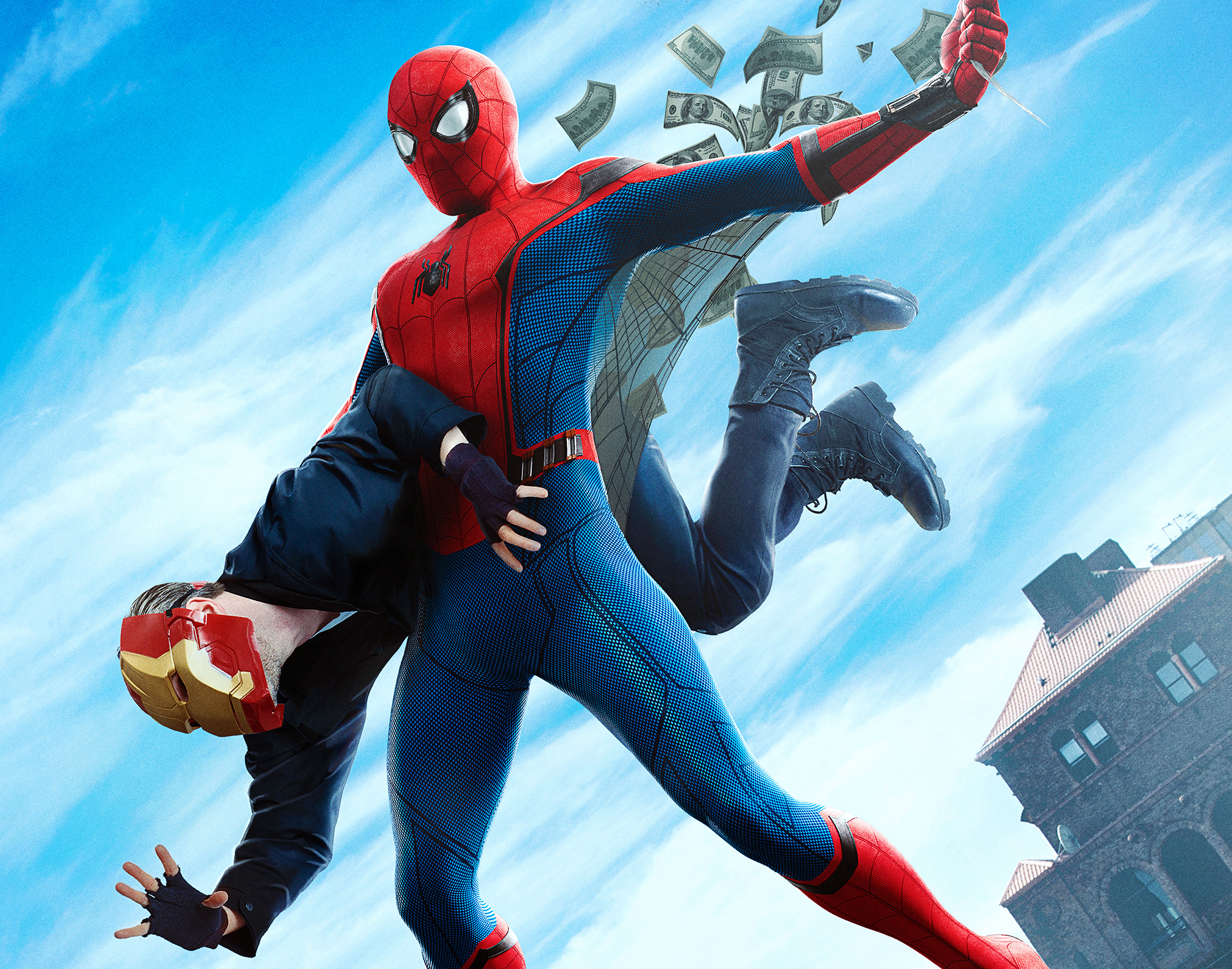“Spider-Man: Homecoming” Is A Tangled Web of Amazing Spectacle
Jul 10, 2017 • Matthew Arcilla

Jul 10, 2017 • Matthew Arcilla
Fifteen years after Sam Raimi’s Spider-Man and we’re on our third incarnation of the character. By all rights, we should be exhausted, our arms folded and our eyes rolling in their sockets. But something changed in the years since then: superhero movies are mostly better than they’ve ever been.
Sure, there is a sense of genre fatigue, but for the most part they’ve become confident and thoughtful. Spider-Man: Homecoming is the culmination of that growth. It also features a hero (and actor) who is much younger than any of his previous incarnations. Star Tom Holland was 19 when he filled the part for Captain America: Civil War and he’s 21 now.
Yet Spider-Man: Homecoming has the most grown-up attitude of the Marvel movies, outside of Iron Man 3. It acts to elevate the Marvel Cinematic Universe – largely seen as the standard bearer for the genre – by showing us a future beyond the superhuman geopolitics and oh so serious macho posturing.
But more importantly, Spider-Man: Homecoming has a great script and a broader appreciation of the Spider-Man character. Homecoming does away with star crossed romance and abandonment issues in favor of something better: the wonder of youth, and the desire to spend it wisely when you’re growing up with great power and great responsibility.
Marvel villains like Ronan and Malekith have been derided for their one dimensional desire to see the world, the galaxy or the planes burn. But the Vulture is a relatable villain whose motivations are far from grandiose: He’s just a low level guy salvaging high tech scrap from fat cats like S.H.I.E.L.D. and Tony Stark. Michael Keaton channels a smoldering resentment such that when he says he will kill you and everyone you love, it’s like a guy down the street putting a gun to your face.
The most troubling aspect of Spider-Man: Homecoming’s marketing was how much Iron Man / Tony Stark was in it. He’s in the trailers, on the poster, and on the social media. But while Stark plays a key role throughout the Peter’s personal arc, he’s wonderfully absent from most of it. His presence is felt, more than it is seen. That gives Peter a lot of breathing room to highlight his enthusiasm, his resourcefulness and his immaturity. And when Stark does show up, he makes those minutes matter.
We’ve said it before: Great power, dead uncle, great responsibility. Peter Parker’s origin has been played out often enough that it hardly needs repeating for all but the most pop-culturally-unaware. Spider-Man: Homecoming wisely eschews the genre formality of an origin. It’s a welcome decision that strips the moral and ethical guilt complex that drove past origins to focus on a good-hearted kid who wants to prove himself.
Spider-Man: Homecoming gives us a great depiction of Peter’s high school, Midtown High, that feels like it belongs in a living, breathing modern day New York. Genre stereotypes like smug jocks and mean girls are thankfully absent, allowing us to focus on what’s going inside Peter’s mind. He’s not preoccupied with the high school pecking order, but is struggling instead to fit into the small world of pop quizzes and prom after briefly stepping into the larger world of the Avengers.
Despite straying far in ethnicity and personality from their comic book counterparts, Peter’s fellow students like Flash and Liz remain broad archetypes. It’s Michelle though, as portrayed by Zendaya, that stands out. She’s a plucky outsider cast from the same mold as Ally Sheedy from The Breakfast Club and has the deadpan snark of Daria Morgendorffer. Michelle doesn’t get much screen time, but she steals every scene she’s in.
Tom Holland’s Spider-Man was easily the best thing about Captain America: Civil War, giving that oh-so-dour film a much needed lightness and joy, especially in that film’s memorable airport battle. But in Homecoming, any doubts one may have had about his ability to carry a film are instantly vaporized. As Peter Parker, Holland doesn’t just give him a joyful awkwardness, but a lovable aspirational quality as well. Holland’s Parker isn’t just a fun-loving geek, but a kid who wants to be as good as his heroes.
Previous Spider-Man films have struggled to marry the technical accomplishments of its fight scenes with their storytelling aspirations. The result is a series of films where fighting seems perfunctory. Homecoming doesn’t just inject web-swinging fights with glee and excitement, but makes good use of dramatic slapstick to highlight how much of Peter’s heroism is improvised. We root for Peter in a good mix up, but we also cringe and laugh at his every mistake.
With Uncle Ben’s death out of the picture, Homecoming illustrates great responsibility in practical terms. Peter may have the power to leap into action but his mistakes center on his failure to think ahead or to consider the consequences of his choices. Whether it’s to leave in the middle of a school trip or to intervene on the street without seeing the big picture, ultimately Homecoming is just as much about Spider-Man’s failures as it is about his triumphs.
What did you think of the movie? Share with us your thoughts below!
Input your search keywords and press Enter.
